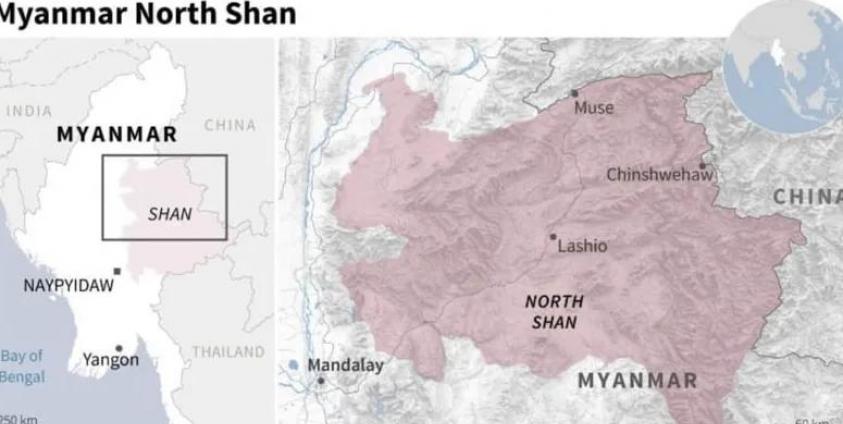The closure of the vital China-Myanmar trade route, Muse-Lashio-Mandalay since the ‘1027 operation ‘ launched against the Junta, has led to border trade between China and Myanmar grinding to a halt in northern Shan State during the last two weeks "Since October 27th, not a single container truck has passed by, and there are no signs of border trade at all”, Muse resident told AFP news agency. Typically, hundreds of trucks, laden with fruits and vegetables, depart from Muse Township for China. On their return journey, they bring back electronics, medicine, and consumer goods from China. However now the border trading route is entirely deserted.
Between April and November of this year, border trade with China reached 5.32 billion USD, with one-third of that sum originating from the Muse and Chinshwehaw border trading posts.
Richard Horsey, a senior advisor at the think-tank -the International Crisis Group, asserted that the disruption of the vital China-Myanmar trade route is a significant setback for the Military Council. The council heavily relies on China, a neighboring superpower, in the trade sector, especially amid the stringent sanctions imposed by Western countries following the coup.
Horsey added that a prolonged blockage of border trade could impact the Military Council's trade balance, revenue, and foreign currency incomes.
Analysts estimate that approximately 1 billion USD in trade income is derived from gas exports to China. A spokesperson for China's foreign ministry stated on Friday that the China-Myanmar natural gas pipeline remains unaffected by the ongoing fighting.
On October 27th, the Three Brotherhood Alliance, comprising three ethnic armed organizations (EAOs), initiated 'Operation 1027' with a surprise offensive on the Military Council's outposts and bases in northern Shan State. The alliance successfully seized control of regional towns, including Chinshwehaw, Hpawnghseng, Kyukoke (Pancsai), Namhkam, Hsenwi (Theinni), with intense clashes continuing in the area.
According to UN agencies, over 50,000 locals have fled the conflict in northern Shan State, seeking refuge from the ongoing clashes.
As a consequence of the China-Myanmar trade route disruption, prices of goods in the domestic market have surged significantly. Lashio Township, situated approximately 100 miles from Muse, is also experiencing the adverse impacts of the conflict.
“Before the clashes, a bag of rice cost 160000 MMK. Now, it has risen to 190000 MMK per bag. The longer the fighting goes on, the worse the situation will be”, a Muse resident, who did not want to be named, told Narinjara.
At the beginning of this month, Myanmar's central bank initiated the implementation of inter-bank payment systems in the cross-border trade sector, making a desperate effort to enhance trade and investment with China.
The Military Council grapples with a substantial shortage of foreign currency, stemming from both sanctions and military expenditures. There is an urgent requirement for foreign currency to facilitate the country's imports and to obtain weapons for combatting the emerging resistance forces across the nation. The China border trade impasse will make things many times worse with no easy solution in sight.







